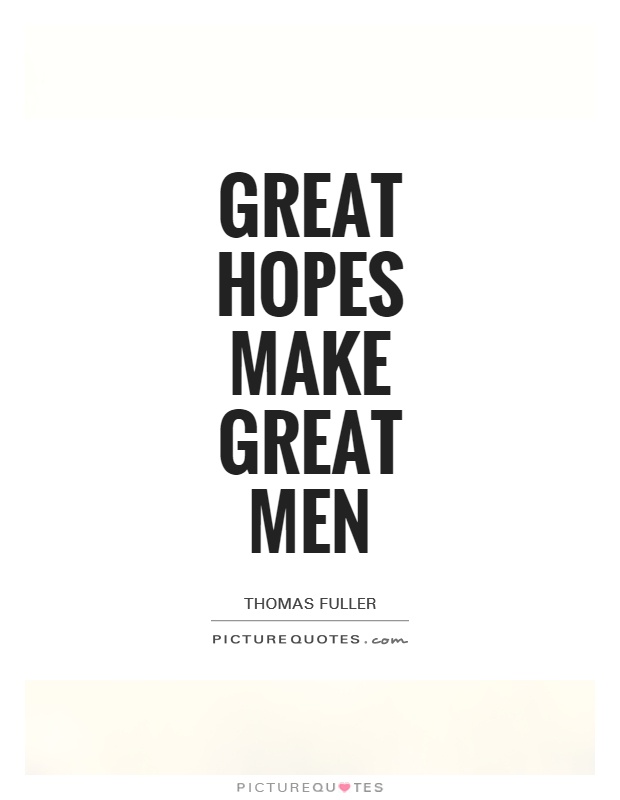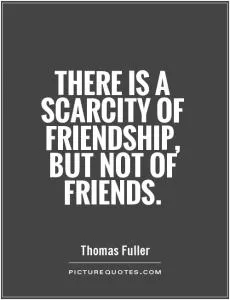
Great hopes make great men

Great hopes make great men
Thomas Fuller, a 17th-century English churchman and historian, is often credited with the quote, "Great hopes make great men." This statement encapsulates the idea that having ambitious aspirations and dreams can lead individuals to achieve greatness in their lives. Fuller himself was a man of great hope and ambition, and his own accomplishments serve as a testament to the power of having lofty goals.Fuller was born in 1608 in Northamptonshire, England, and from a young age, he displayed a keen intellect and a thirst for knowledge. He attended Cambridge University, where he excelled in his studies and eventually became a prominent clergyman in the Church of England. Throughout his life, Fuller was known for his wit, wisdom, and prolific writing, producing numerous works on history, theology, and moral philosophy.
One of Fuller's most famous works is "The Holy State and the Profane State," a collection of essays that explore the virtues and vices of human nature. In this book, Fuller emphasizes the importance of having high hopes and aspirations, arguing that those who aim for greatness are more likely to achieve it. He believed that individuals who set ambitious goals for themselves are driven to work harder, persevere in the face of adversity, and ultimately succeed in their endeavors.
Fuller's own life exemplifies the truth of his words. Despite facing numerous challenges and setbacks throughout his career, he never wavered in his belief that he could make a positive impact on the world. His writings continue to inspire generations of readers to strive for greatness and never give up on their dreams.












 Friendship Quotes
Friendship Quotes Love Quotes
Love Quotes Life Quotes
Life Quotes Funny Quotes
Funny Quotes Motivational Quotes
Motivational Quotes Inspirational Quotes
Inspirational Quotes